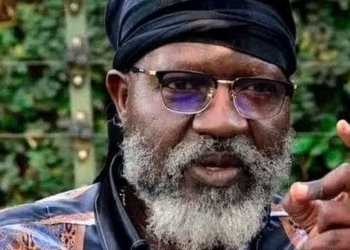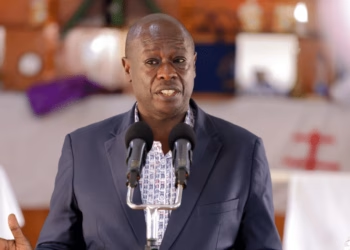The Evangelical Alliance of Kenya (EAK) has vehemently opposed the Religious Organizations Bill, 2024, introduced by Tana River Senator Danson Buya Mungatana.
During a press conference on September 25, 2024, at CITAM Valley Road, EAK criticized the expedited process of advancing the Bill through the Senate without adequate stakeholder engagement, asserting that it poses a threat to the religious freedoms guaranteed by the Kenyan Constitution.
“Religious organizations have played a crucial role in shaping Kenya’s social and economic landscape,” stated EAK chairman Philip Kitoto. “We must recognize the historical significance of these institutions. As a community, we are deeply concerned about the rushed manner in which this Bill has been presented in the Senate.”
Introduced on September 11, 2024, the Religious Organizations Bill aims to establish a legislative framework for the registration and regulation of religious organizations in Kenya. However, EAK, which represents over 12 million evangelicals nationwide, argues that the Bill infringes on religious freedom as outlined in Article 32 of the Constitution.
“The Bill not only restricts religious activities but also imposes undue limitations on religious leaders,” they emphasized.
The EAK expressed surprise and disappointment, especially given their active support for the Presidential Taskforce on the Review of the Legal and Regulatory Framework Governing Religious Organizations, which was established following the Shakahola tragedy that highlighted gaps in the regulation of religious extremism.
Despite acknowledging the misuse of religious platforms by rogue individuals, EAK insists that the solution lies in encouraging self-regulation within religious institutions rather than imposing strict government controls. They urged the Senate to prioritize internal dispute resolution mechanisms instead of overreaching regulations.
EAK outlined several concerns regarding the Bill, emphasizing the absence of public participation—a key principle enshrined in Article 10 of the Constitution. “As religious leaders, we feel excluded from the legislative process despite being essential stakeholders,” they stated.
The Alliance also expressed alarm over the punitive aspects of the Bill, including stringent qualifications for the proposed Registrar of religious organizations and the requirement for annual inspections of all registered entities. They argued this would create unnecessary bureaucracy and potential avenues for corruption.
Kitoto reiterated that the Bill should be withdrawn entirely, advocating for the development of a balanced framework that respects religious freedoms based on the findings of the Presidential Taskforce. “The government should prioritize civic education to ensure the legal and regulatory framework serves all Kenyans,” he said.
If the Bill is passed, Kitoto indicated that EAK would challenge it in court. “We have our own governance guidelines for local churches. We are not opposed to governance; we simply seek to self-regulate, just as other professions do,” he explained. “Why should we be forced into a certain regulatory path when we have our own ways of governance?”

















